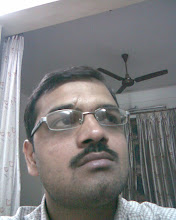Bihar's transparency watchdog has directed universities to provide photocopies of the examined papers to examinees, if they so desired.
The State Information Commission recently passed an order on a petition filed by a student of B Com first year of L N Mithila University (LNMU), Murari Kumar Jha, who wanted to inspect his answer copy.
The university, taking refuge under Section 8 (1) (e) of the Right to Information (
RTI) Act, had rejected the student's plea on the ground of fiduciary relationship between the authority conducting the examination and the examiner.
Fiduciary relationship refers to the special relationship of trust between persons in the eye of law such as between a doctor and a patient or a lawyer and a client.
Rejecting the university's plea, Information Commissioner P N Narayan said "This Commission does not find any merit for allowing a claim of fiduciary relationship under Section 8(1)(e) of the
RTI Act which would not come in the way of allowing the request of Murari Kumar Jha to inspect the examination copy.
"Allowing of a fiduciary relationship between the University or the Commission and its examiner as the reason for not allowing the student or the candidate to scrutinise answer books puts them in a position in which they may suffer wrong without remedy," the Commission observed.
The Registrars-cum-Principal Information Officers of universities have been asked to make available photocopies of answer sheets within a month of receipt of any such application by examinees, Commission Secretary S K Mishra said.
The Commission's order said that
RTI Act is a law intended to promote transparency in such a way that the interersts of, among others, students of the university and the candidate before a Public Service Commission were protected.
The transparency watchdog noted that the university and the Commission had a much more stronger fiduciary obligations toward students or candidates instead of the examiners.
While disposing of a similar case filed by an examinee Ashutosh Chand of Magadh University, the Commission, in a recent order, made it clear that the university could not arbitrarily fix fee for providing answer scripts.
In his complaint, Chand had said that the university authorities had asked him to deposit Rs 1500 for securing a photocopy of his answer script.
"The Commission is of the view that the power to determine the quantum of fee for getting photocopies of the answer sheets vests in the state government, which would decide the fee rationally," Mishra said, adding the panel had suggested to the university to submit a proposal to the government regarding the charges it intended to impose for approval.






